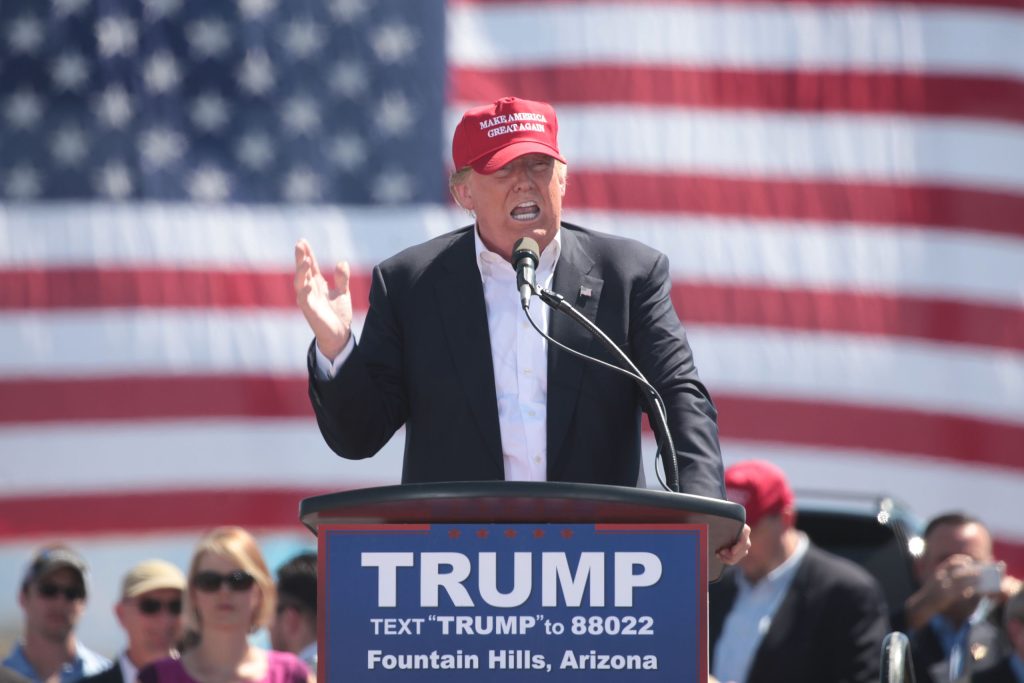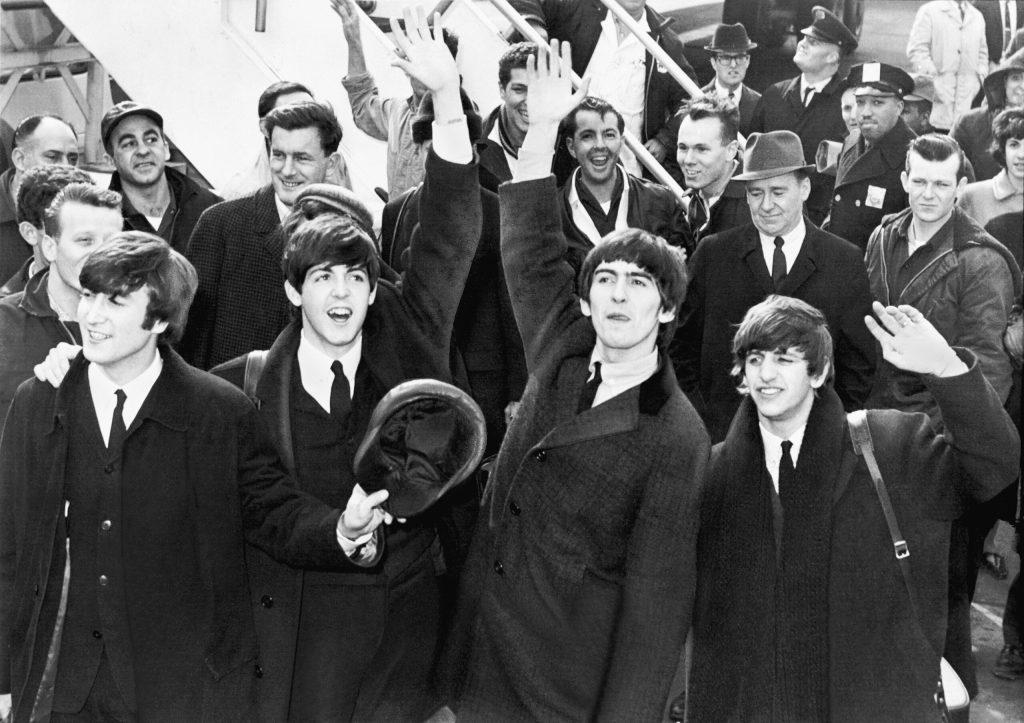
Sociological, cultural, psychological & political analysis of Trump Mania
-Sasha Uzunov, Editor Alternate Comms
Critics and supporters alike, pundits, politicians, social and cultural elites and average Australians obsessing so much about the President of the United States of America, Donald Trump, is a mania not experienced in Australia since British pop band the Beatles arrived in 1964.
Why is President Trump a subject of such intense interest in a faraway land, a far way continent? Who laid the groundwork, the foundations, of his popularity or infamy in Australia?

The swagger, the bombast, the pouting, the larger-than-life character that is Trump has captivated his allies and repulsed his foes. The US President clearly understands the power of the media, the power of the popular entertainer. He is the equivalent of a political rock star.
When the British band the Beatles hit Australia in 1964 it was as though someone had dropped a cultural nuclear bomb on this then isolated continent. The Beatles, nicknamed the Fab Four, were part of an epoch in Western civilisation which marked the rise of the teenager and teenage culture, teenage rebellion and teenage consumerism. Before this, children were seen and not heard.
The Beatles’ youthfulness and music struck a receptive chord with adolescent Australians who were far away from teen fashions in Western Europe and North America. Over 100,000 turned up to see the Beatles in Melbourne, and nearly 400,000 in Adelaide, whose population was about 700,000!

But another factor, largely missed, in the Beatles popularity in Australia is its people, both young and old, still identified as culturally British. It was only in early June 1969 that the Australian federal government changed the Citizenship Act by removing British nationality for Australians. Australians of that era travelled on British passports. Britishness was associated with Australianess. The Beatles were part of the family, so to speak, in Australia.
So how does all of this link to Trumpmania? A large number of Australians, either consciously or unconsciously, now identify with American culture. Britishness associated with Australianness has been replaced by Americanness associated with Australianness. I would describe this as Cultural Empathy. To borrow from American psychologist Carl Roger’s Person Centred Therapy Theory concept of “empathy,” in which counsellor [Trumpism] empathises with the client/patient [Australian people who support Trumpism].
Without rehashing historical events in enormous detail, suffice to say that the emergence of an independent Australian identity stripped of its Britishness began with events in World War II. Britain could no longer defend Australia against the Japanese so Australia turned to another powerful Anglophone patron the United States.
So you could argue that there is an unconscious need, going back to an unresolved issue, in this instance Australia’s subordinate position to the former “motherland” England, for a protector, such as Trump and the United States. That would fit in with Freudian psychoanalysis.
Fast forward to the 21st century. Indigenous Australians (Australian Aborigines), largely marginalised in the past, have rightly come to prominence and Britishness has largely been banished from the Australian cultural and sporting space. But this phenomenon if Indigenisation has paradoxically coincided with Americanness replacing Britishness as the driver of culture in Australia.
America has its own long unresolved colonial issues, such as native Americans and African slavery. In the 1950s and 60s, the US government kept a close eye on indigenous Australian activists in Australia for fear that they might link up with the African American Civil Rights Movement or the far more militant Black Panthers.
Australian sporting events are now complete with contradictory rituals – on the one hand Indigenous Australians are acknowledge and Britishness ignored, Australia Day condemned over “colonialism, and on the other hand symbols of American nationalism, which paradoxically have “colonial issues” are displayed to reinforce the association of Americanness with Australianness.
At 2025 Australian Tennis Open final – women’s singles which feature US player Madison Keys – an “association” was made with US President Trump. On top of that another US tennis player Jessica Pegula has been able to promote the controversial US NFL for the past four years.
Other sports such as Australian Rules Football, governed by the AFL, and soccer (football), have emphasised the links between Americanness and Australianness.
In Australia, sports culture is a powerful political medium in getting messaging across. The AFL is more powerful than the main political parties such as the Australian Labor Party (ALP) and the Liberals, the conservatives. It explains why Australian government at all levels, federal, state/territory and local, hand over millions in tax funding to the major Australian sports bodies. It is no coincidence that the US State Department has understood the soft power value of “US sports diplomacy.
The delicious irony is that some leading Australian politicians, such as Victorian State Premier Jacinta Allan who have been staunch critics of US President Trump’s “divisive” style of politics being imported into Australia, have laid the groundwork, created the fertile soil, for Trumpism in gain a strong foothold in Australia. They have done this by funding Australian sports that promote US cultural nationalism and associate Americanness with Australianness.